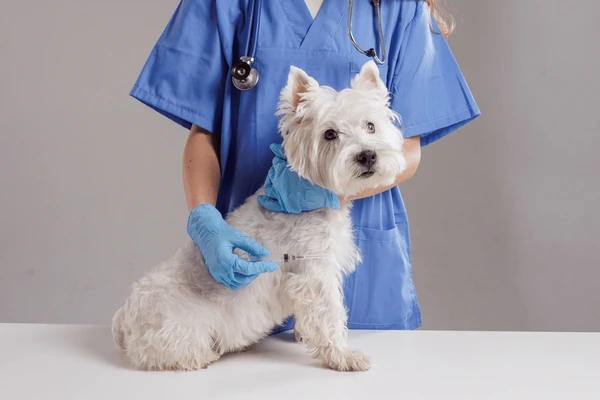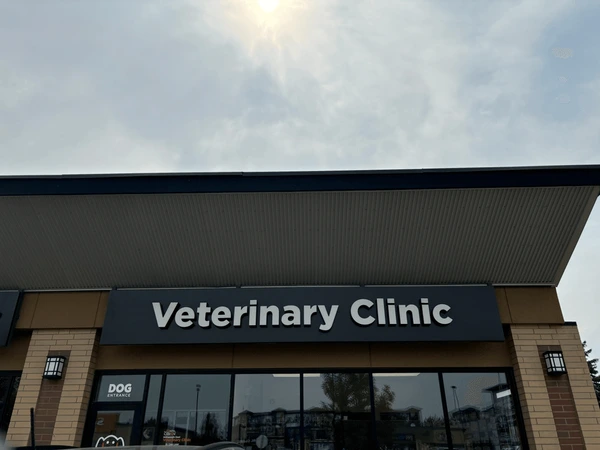-
Kutchina service center, Kolkata - 700010
Kutchina service center, Kolkata - 700010

Wondering why senior pets need special attention at a vet clinic? Learn how tailored care, regular check-ups, and preventive health measures can improve their golden years. Insights shared by the Best Pet Clinic in Kolkata.
Aging is a natural process for every living being, and our beloved pets are no exception. As cats and dogs grow older, their bodies and behaviors begin to change — sometimes subtly, other times dramatically. Just like elderly humans need specialized healthcare, senior pets too deserve personalized attention and regular medical supervision.
Providing dedicated care for aging pets isn’t merely about extending their lifespan; it’s about enhancing their quality of life — ensuring they live their later years with comfort, mobility, and joy. This is where regular visits to a trusted vet clinic become essential.
Let’s explore why senior pets require specialised care, what changes to watch for, and how routine veterinary visits can make all the difference.
Senior pets age much faster than humans, and their life stages differ across breeds and species. For instance:
With age, pets experience gradual physiological changes such as reduced metabolism, joint stiffness, dental deterioration, and weakened immunity. These changes make them more vulnerable to diseases — many of which can be managed or prevented with early diagnosis at a reliable vet clinic.

Aging pets have unique health requirements that differ from those of younger animals. Below are key reasons why specialized care is vital:
Older pets are at a higher risk of developing chronic illnesses like:
Through routine check-ups and diagnostic screenings, veterinarians can identify early signs of these conditions. Early intervention not only improves prognosis but also helps reduce pain and discomfort for your pet.
As pets age, their metabolism slows down, making them more prone to obesity — which can worsen joint issues and other conditions.
A professional vet clinic will guide you in creating a personalized diet plan that supports your pet’s digestion, bone health, and overall well-being.
Joint stiffness and osteoarthritis are common in senior animals. Without proper management, these issues can lead to chronic pain, reduced movement, and irritability.
Specialized care includes:
A compassionate veterinary approach ensures your pet remains active and comfortable in its golden years.
Oral health plays a critical role in the overall wellness of senior pets. Neglecting dental hygiene can lead to painful infections, tooth loss, and even organ damage due to bacteria entering the bloodstream.
Regular dental cleaning and inspections at a vet clinic can help prevent:
Just like humans, pets can experience cognitive decline as they age. You might notice:
Veterinarians can recommend supplements, mental stimulation techniques, and calming therapies to slow cognitive decline and improve your pet’s emotional stability.
Routine diagnostic tests are crucial in senior pet care. Blood panels, urine analysis, and imaging tests like X-rays or ultrasounds can detect hidden problems before they become severe.
Such proactive care allows veterinarians to:

For younger pets, an annual check-up may suffice. However, for senior pets, biannual visits (every six months) are highly recommended. This frequency ensures that even the smallest changes in health or behavior are noticed early.
During these visits, a vet typically performs:
These preventive measures help identify concerns before they escalate, ensuring your furry friend stays comfortable and healthy.
Caring for a senior pet doesn’t stop at the clinic. At home, a few lifestyle changes can make a world of difference:
Aging pets may experience loneliness, anxiety, or depression, especially if they sense physical limitations. Emotional support is as crucial as medical care.
Simple gestures — gentle grooming, quality time, short walks, or comforting words — strengthen their bond with you. A caring vet clinic often emphasizes this holistic approach, integrating emotional care with physical treatment.
Specialized senior care ensures:
In essence, specialized care at a reputable clinic transforms the final chapters of your pet’s life into a period of contentment and companionship.

Q1. At what age is my pet considered senior?
It depends on the species and breed. Generally, cats and small dogs are senior at around 9–10 years, while large dogs may be considered senior by age 6–7.
Q2. How often should I take my senior pet for a check-up?
Ideally, every six months. Regular visits to a vet clinic allow for early detection of potential health issues.
Q3. What are the signs my senior pet may be unwell?
Watch for symptoms such as decreased appetite, excessive sleeping, weight loss, limping, or behavioral changes. These could indicate underlying health problems.
Q4. Can older pets still get vaccinations?
Yes, but the vaccination schedule may be adjusted based on age, health status, and lifestyle. Your veterinarian can design a plan tailored to your pet’s needs.
Q5. How can I make my senior pet’s life more comfortable at home?
Offer soft bedding, maintain a steady routine, and ensure easy access to food, water, and litter. Regular affection and gentle play also help maintain mental stimulation.
Every pet deserves a peaceful, comfortable, and fulfilling life — especially during its senior years. Specialized care, guided by experienced veterinary professionals, ensures that aging pets continue to feel loved, valued, and well-cared for.
For pet parents seeking expert guidance, compassion, and a scientific approach to senior pet health, APC Pet Clinic stands as the Best Pet Clinic in Kolkata, dedicated to enhancing every pet’s well-being through comprehensive, personalised care.